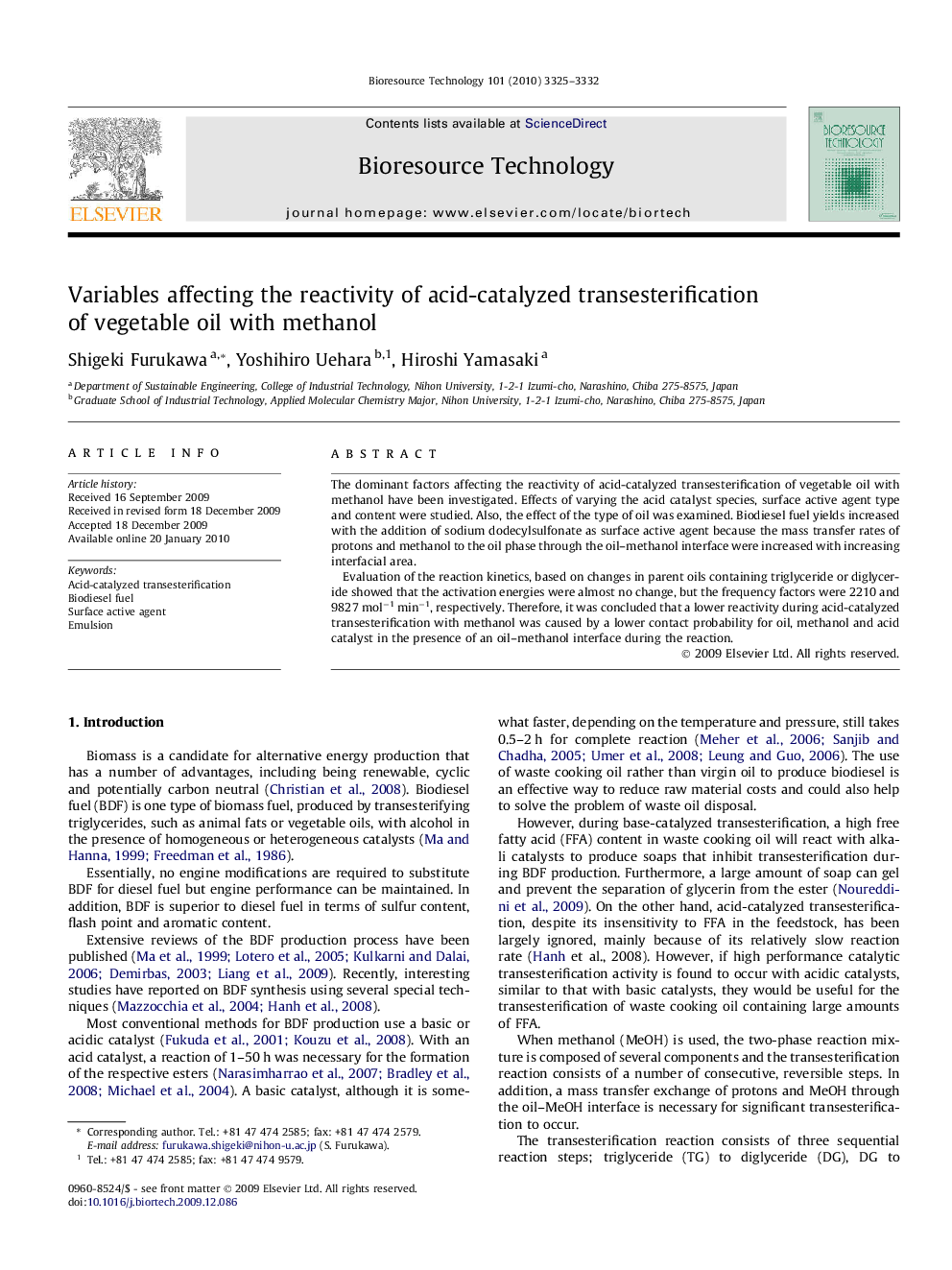| کد مقاله | کد نشریه | سال انتشار | مقاله انگلیسی | نسخه تمام متن |
|---|---|---|---|---|
| 683244 | 888998 | 2010 | 8 صفحه PDF | دانلود رایگان |

The dominant factors affecting the reactivity of acid-catalyzed transesterification of vegetable oil with methanol have been investigated. Effects of varying the acid catalyst species, surface active agent type and content were studied. Also, the effect of the type of oil was examined. Biodiesel fuel yields increased with the addition of sodium dodecylsulfonate as surface active agent because the mass transfer rates of protons and methanol to the oil phase through the oil–methanol interface were increased with increasing interfacial area.Evaluation of the reaction kinetics, based on changes in parent oils containing triglyceride or diglyceride showed that the activation energies were almost no change, but the frequency factors were 2210 and 9827 mol−1 min−1, respectively. Therefore, it was concluded that a lower reactivity during acid-catalyzed transesterification with methanol was caused by a lower contact probability for oil, methanol and acid catalyst in the presence of an oil–methanol interface during the reaction.
Journal: Bioresource Technology - Volume 101, Issue 10, May 2010, Pages 3325–3332